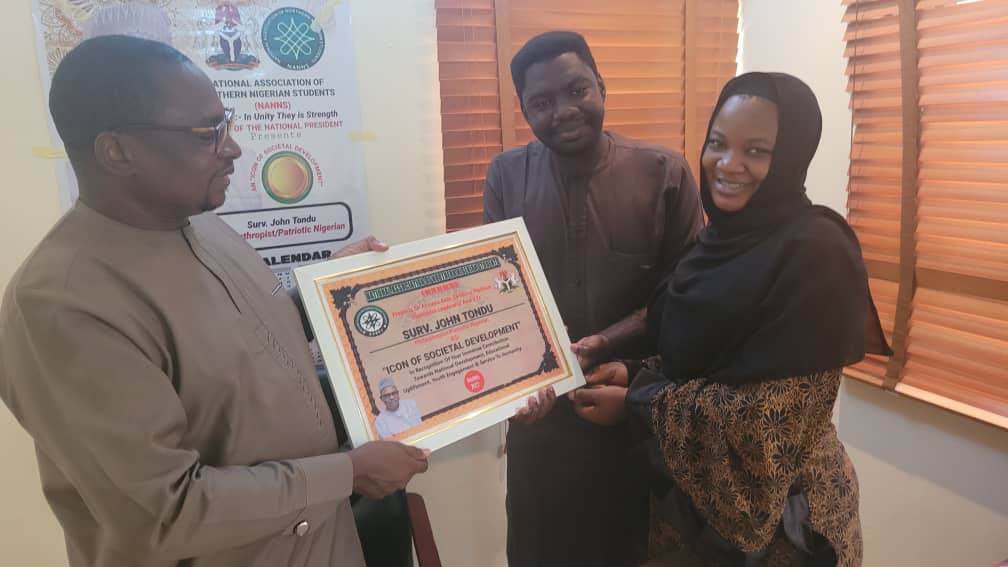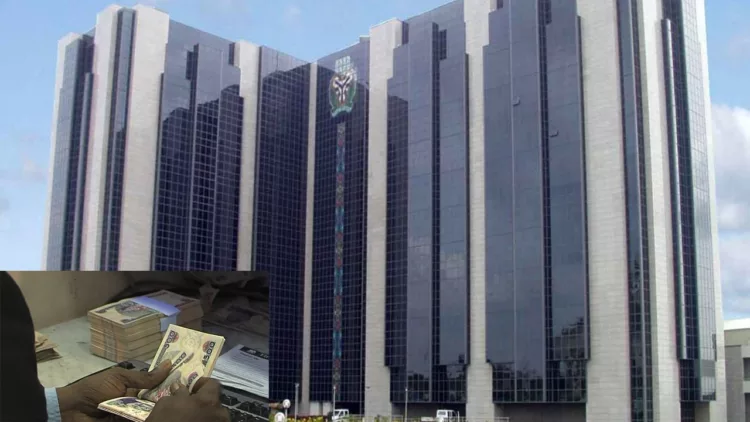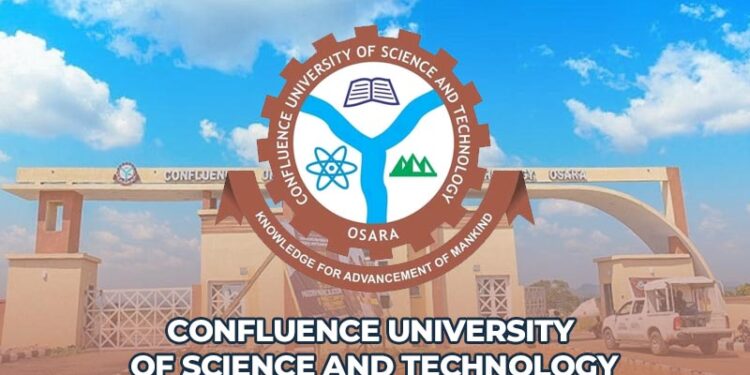Security
Ex-Benue Commissioner, Tondus blame insecurity on Govs stance against LG autonomy

An aspirant on the platform of the Peoples Democratic Party (PDP) in Benue state, Surveyor John Tondus, has accused Nigerian governors of being responsible for insecurity in the nation for deliberately standing against Local Government Autonomy.
Hon Tondus, who is also a former Commissioner for Local Government in Benue state, said the state governors were making huge money from the insecurity in their respective states, hence they don’t want it to end.
Tondus made the allegations, Tuesday in Abuja, after he received an award of recognition from the National Association of Northern Nigerian Students as an Icon of Societal Development.
The PDP chieftain said local government areas across the country are moribund because the governors have done everything to stifle their autonomy, stressing that the National Assembly should do everything possible to sustain the third tier of government because it is a government that is closer to the people and their autonomy should be quaranteed by all means possible
He said the Local Government Councils are not fairing better because governors have decided to force the chairmen to sign an agreement for operation of joint account such that once allocation comes the money goes straight to the account and whatever the governors decide to give them is what they will operate with despite being below the wage bill of the Councils.
According to him: “It is state governors that are responsible for the insecurity in this country today, if the local Government system is functional to an extent the third tier of government would be in a position to recruit local vigilante that know every nook and corner of the LGA and be able to identify where criminals are hiding.
“But they are not empowered to do that. So, even if they are willing they won’t be able to achieve that because the state governors are taking the resources meant for the local government.
“They forced the local government chairmen to sign for the joint account despite the president’s determination to make sure that money meant for the LGAs goes to them directly.
“The state governors make the local government chairmen to sign these monies into a joint account that are used for the purposes it was not meant for.”
He challenge anybody to go into the local government and find out exactly the wage bill. “Take 2 to 3 LGAs as a case study. What exactly is the wage bill of such local government?
“And how much is the monthly allocation for that local government? If you are able to established how much is the monthly wage bill of the local government, then ask the chairmen the surplus of the money. “How do they utilize it for the period that they were in charge? There is no single capital project that you can point to and this money is also not there. How will you explain?
“You will come back and tell me the governors are responsible for the 85-95% of the insecurity that we are facing as a nation today”, he said.
He, however maintained that even if the LGAs are fixed, the insecurity will still not be addressed because it is a deliberate policy of the governors to ensure the local councils are not working for the interest of the people.
He said it is sad that despite the presence of police, DSS and Civil defense in the local government councils, little is known about them because hardly will the governors share from their security votes with the Local Government chairman.
“In fact the challenge we have as it concern insecurity today is because the third tier of government is not working. Some of us were born and brought up in the village. And we know how and when the local government system was effective.
“The local government chairmen were elected by the people and not selected by the governors. I will take you back to the insecurity, we are talking about today.
“For instance in each local government headquarters, you have the police and the DSS. You have the NSCDC.
“But I will tell you that because I have the privilege of working in government, I will tell you for free that the local government chairmen don’t have access to 2 million naira as security votes in that LGA. “Where a local government chairman will need to spend 2 million on issues of security in the state, he will have to get across to the governor if such an approval will be given for him to be able to access the 2 million naira.
“Now, we are talking about insecurity which is an emergency situation, even the process and procedures the local government chairman will use to reach the governor, of course there are some that can only reach the governor once in a month.
“So, how will you be able to address the issues as chairman after being referred to as the Chief security officer of the local government on paper.
“That is the reality that you are not the chief security officer of the local government. So, lack of autonomy of the LGA contributes 75-80% of insecurity we are facing in our country today”, he stated.
On some of his experience on this salient issue of security challenge that he has faced, he noted that since 2018, no single person lives in his local government council as people have deserted the place due to fear of attacks.
“My own personal home has been deserted since 1st of January, 2018. As I speak with you since that time till date, there is no Police in my community, Goma local government in Benue state. There is nobody in my community since on the 1st January, 2018. Nobody and the place has been deserted. And there is no conscious efforts to return my people back to their places.”
Security
CBN backpedals, Withdraws Circular On Cybersecurity Levy

The circular the Central Bank of Nigeria (CBN) issued to all commercial banks on May 6, 2024, directing them to implement a compulsory withdrawal of 0.05 per cent from every electronic transaction as cybersecurity levy has been withdrawn
The directive for collection of the levy led to a nationwide uproar when the central bank introduced the policy last week.
The Presidency however, heeded the warning from various quarters, succumbed and immediately suspended the implementation of the Cybersecurity Levy.
In a withdrawal circular that was issued by the CBN on Sunday night, it directed the banks not to go ahead with the initial directive, in line with the presidential directive. The apex bank authorities claimed it’s a sign that the present administration was a listening one that prioritises public good.
“Further to this, please be advised that the above referenced circular is hereby withdrawn,” CBN director in charge of payments system, Chibuzo Efobi, and the director, financial policy and regulation, Haruna Mustapha, said in the circular, adding that all banks should “Please be guided accordingly.”
Security
Kogi: Police Confirm Rescue Of 7 More CUSTECH Students

By Friday Idachaba, Lokoja.
Nigeria Police, Kogi State Command has announced the rescue of seven more students of Confluence University of Science Secondary Technology (CUSTECH) kidnapped by hoodlums on Thursday, May 9.
Police Public Relations Officer (PPRO) SP William Ovye Aya, made the announcement in a press statement on Thursday in Lokoja.
He said that feat was achieved through the intervention of Inspector-General of Police, IGP Kayode Adeolu Egbetokun who ordered the deployment of the Air Component of Police Security Apparatus made up of a Helicopter Crew.
The deployment, he said was in furtherance of the ongoing Rescue Operation and to sustain the onslaught to rescue all the kidnapped students.
He said that the Air Component deployed to Kogi State on Tuesday 14th May, 2024 was made up of Helicopter Crew specially trained for Aerial Surveillance, Monitoring Team as well as Technical Intelligence Unit (TIU).
“The reinforcement is in response to IGP’s unwavering passion about protecting lives and property of all Nigerians especially the safety of our children in various schools in the country”, Aya said.
With the new development which Aya ascribed to the diligence and indomitable spirit of all the combined team, 27 students have so far been rescued from the kidnappers as a total of 20 students were earlier rescued.
“Be it noted that it is not over until it is over” so we should not rest on our Oars, instead all hands must be on deck to ensure all are safely rescued and perpetrators brought to deserved justice”, the PPRO declared.
He stated that Kogi State Government as well as the University Community were satisfied with the Rescue Operations so far.
“The State Government has commended the indubitable, unassailable level of cooperation, collaboration and synergy amongst the Security Agencies, Local Vigilantes and Hunters in the State”, he enthused.
According to Aya, the Commissioner of Police, CP Bethrand Onuoha has seized this occasion to thank and appreciate the Inspector-General of Police for the deployment of the Air Component.
The CP, he said, also commended the Security Personnel, and Vigilantes/Hunters for their “show of unprecedented and undiluted patriotism and altruism, and to the good people of Kogi State as well as the vibrant Press for their show of concern and empathy.”
“The CP will continue to solicit the cooperation, collaboration and solidarity of the good people of Confluence State with the Police and other Security Agencies.
“Together, we shall ensure adequate Security of life and property of law-abiding citizens in the State”, he assured. (Ends)
Security
Senate backs FG, CBN over controversial Cybersecurity levy

***Insists, it is NASS creation to safeguard economy, country against insecurity
The Chairman of the Senate Committee on National Security and Intelligence, Senator Shehu Umar Buba, has allay the fears being entertained by Nigerians over the proposed implementation of the Cybersecurity levy by the Central Bank of Nigeria (CBN).
While giving tacit support to the Federal Government on the levy that has created bad blood among Nigerians against the Tinubu administration Senator Buba said th levy is provided for in the Cybercrimes (Prohibition, Prevention, etc) (Amendment) Act, 2024.
He clarified that the levy is not punitive as it has numerous exemptions to protect and relieve ordinary citizens, particularly the poor.
According to him, the exemptions include salary payments, intra-account transfers, loan disbursements and repayments, and other financial transactions.
Senator Buba said the amendments to the Cybercrimes Act were collaborative effort with the National Assembly’s ICT and Cyber Security Committee. Explaining further he said committee also underwent a transparent public hearing process, receiving contributions from various stakeholders.
“Both chambers of the National Assembly unanimously passed it before President Bola Ahmed Tinubu signed it into law.
Senator Umar reiterated the fact that the provisions for the cybersecurity levy have been in place since 2015 but were delayed due to unclear interpretations and applications.
“The Cybercrimes Act of 2015 has provisions for imposing a cybersecurity levy since its enactment, but the vagueness of Section 44 led to different interpretations until the 2024 amendments. The levy is 0.5%, equivalent to half a per cent of the value of all electronic transactions by businesses specified in the Second Schedule to the Act.
“The amendments addressed crucial gaps in the Act and empowered the nation to implement the National Cybersecurity Programme effectively. They also seek to realign and empower the country to combat the inadequate funding and disruptive effects of cyber threats on national security and critical economic infrastructures,” he said.
Senator Umar underscored the criticality of the cybersecurity levy’s implementation, stating that its prudent utilisation will bolster the nation’s capacity to evaluate, execute, upgrade, and fortify the security of national critical economic infrastructure, thereby safeguarding the nation’s cyberspace.
The chairman commended the Office of the National Security Adviser and the Central Bank of Nigeria (CBN) for initiating the operationalising the cybersecurity levy, highlighting its benefits far outweigh its drawbacks.
He expressed appreciation to the leaders and representatives of MDAs at the federal and state levels, as well as to all stakeholders who contributed to this effort’s success.
While maintaining that the Committee’s mandate is to create laws that align with the aspirations of Nigerians, he appealed for public support, assuring that the policy will yield maximum benefits for citizens in the shortest possible time.
Following the enactment of the Cybercrime (Prohibition, Prevention, etc) (Amendment) Act 2024 and under the provision of Section 44 (2)(a) of the Act, a levy of 0.5 per cent (0.005) equivalent to half per cent of all electronic transactions value by the business specified in the Second Schedule of the Act is to be remitted to the National Cybersecurity Fund, which the Office of the National Security Adviser shall administer.
Though the announcement created controversy, the circular exempted some transactions from cybercrime levy.
The exemptions included loan disbursements and repayments, salary payments, intra-account transfers within the same bank or between different banks for the same customer, intra-bank transfers between customers of the same bank, and Other Financial Institutions (OFIs) instructions to their correspondent banks.
The exemption also applies to interbank placements, banks’ transfers to CBN and vice versa, inter-branch transfers within a bank, cheque clearing and settlements, and Letters of Credit (LCs).
Others include banks’ recapitalisation-related funding only bulk funds movement from collection accounts; savings and deposits including transactions involving long-term investments such as treasury bills, bonds; and commercial papers; government social welfare programmes transactions, e.g. pension payments; non-profit and charitable transactions including donations to registered non-profit organisations or charities; educational institutions transactions, including tuition payments and other transaction involving schools, universities, or other academic institutions.
-

 Crime1 year ago
Crime1 year agoPolice nabs Killer of Varsity Lecturer in Niger
-

 News1 year ago
News1 year agoFCT-IRS tells socialite Aisha Achimugu not to forget to file her annual returns
-

 Appointment2 years ago
Appointment2 years agoTinubu names El-Rufai, Tope Fasua, others in New appointments
-

 News From Kogi1 year ago
News From Kogi1 year agoINEC cancells election in 67 polling units in Ogori-Magongo in Kogi
-

 News From Kogi2 years ago
News From Kogi2 years agoEchocho Challenges Tribunal Judgment ordering rerun in 94 polling units
-

 News2 years ago
News2 years agoIPOB: Simon Ekpa gives reason for seperatists clamour for Biafra
-

 Metro1 year ago
Metro1 year ago‘Listing Simon Ekpa among wanted persons by Nigeria military is rascality, intimidation’
-

 News1 year ago
News1 year agoKingmakers of Igu/ Koton-Karfe dare Bello, urge him to reverse deposition of Ohimege-Igu
